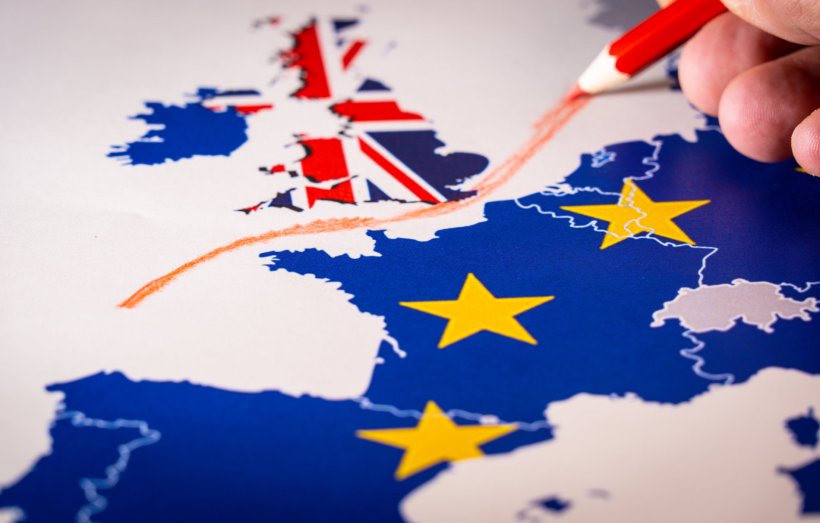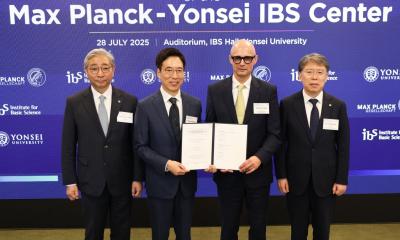
Image source: Adobe Stock/tanonte
News • Science and research collaboration
UK rejoins "Horizon Europe" programme
The "Brexit" withdrawal of the UK from the European Union has also been a disconnect for many joint research projects. The news of the UK rejoining the "Horizon Europe" programme feels like a silver lining for many.
Horizion Europe is the world's largest research collaboration programme, with a budget of €95bn (£81bn). Access for UK researchers had been severely restricted for years because of Brexit disagreements. Effective September 7, 2023, UK researchers can apply for grants and bid to take part in projects under the Horizon programme, "with certainty that the UK will be participating as a fully associated member for the remaining life of the programme to 2027", the UK Goverment stated in a press release.
Commenting on the agreement, UK Prime Minister Rishi Sunak said: "Innovation has long been the foundation for prosperity in the UK, from the breakthroughs improving healthcare to the technological advances growing our economy. With a wealth of expertise and experience to bring to the global stage, we have delivered a deal that enables UK scientists to confidently take part in the world’s largest research collaboration programme – Horizon Europe. We have worked with our EU partners to make sure that this is right deal for the UK, unlocking unparalleled research opportunities."
Nearly three quarters of respondents to our survey of cancer researchers cited funding from the EU as important for their work, showing how crucial Horizon Europe association is for the future of cancer research
Michelle Mitchell
The decision to reestablish connection means researchers once again have full access to apply for significant grant funding and take part in projects under the scheme. In addition to the Horizon Europe flagship research and innovation programme, the new agreement also covers association with Copernicus, the EU's €9bn (£8bn) Earth observation programme.
Response of the UK's scientific community has been unsurprisingly positive: In a joint statement, the UK's Academy of Medical Sciences, British Academy, Royal Academy of Engineering, and Royal Society expressed their enthusiasm for the agreement: "This is a great day for researchers in the UK and across Europe. The Horizon programme is a beacon of international collaboration and UK-based academic and industrial researchers will now be back at the heart of that. Research is vital to tackling the key problems we face, from global challenges such as climate change to driving productivity growth and creating new jobs locally. Our involvement in Horizon Europe will make the UK stronger and is a big win for global research and innovation."
The agreement is especially welcomed in the UK's healthcare-related institutions. Michelle Mitchell, Chief Executive of Cancer Research UK, said: "Horizon Europe association is overwhelmingly in the best interests of cancer patients and scientists, and it is great news for cancer research that agreement has finally been reached between the UK and EU. There will be relief throughout the research community that the uncertainty of the last two and a half years has come to an end. Nearly three quarters of respondents to our survey of cancer researchers cited funding from the EU as important for their work, showing how crucial Horizon Europe association is for the future of cancer research. We hope that this deal paves the way for the UK’s ongoing participation in future European research programmes."
“Today’s announcement on the UK’s association to Horizon Europe and Copernicus is a cause for celebration on both sides of the channel,” said Dr Michael Spence, President and Provost of University College London. “Association to Horizon Europe will enable research which makes a positive difference to people’s lives, supporting vital research and innovation networks and strengthening the UK’s position as an attractive destination for talent. We are grateful to the UK Government and to the European Commission for their efforts to secure a deal, and to the many members of our community who have advocated for this outcome.”
Professor Stuart Elborn, Provost and Deputy Vice-Chancellor od Queen's University Belfast, also was among those expressing their relief over the new agreement, saying that "Queen's and Ulster University have had a very strong track record in European collaboration through European research funding. This will have a direct impact on translational research in Northern Ireland and will also support the implementation of the Belfast Region City Deal and the other coming Regional Growth Deals which will be a gamechanger for our economy and the wellbeing of society."
Sources: UK Government/gov.uk / University College London / Queen's University Belfast
08.09.2023










